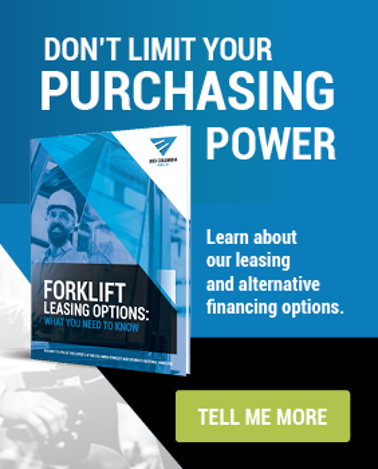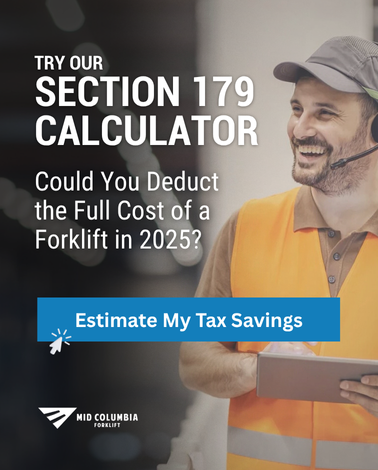The Complete Guide To Getting and Maintaining a Li-ion Forklift Fleet
by Phil Hanford, on August 12, 2022 at 10:09 AM
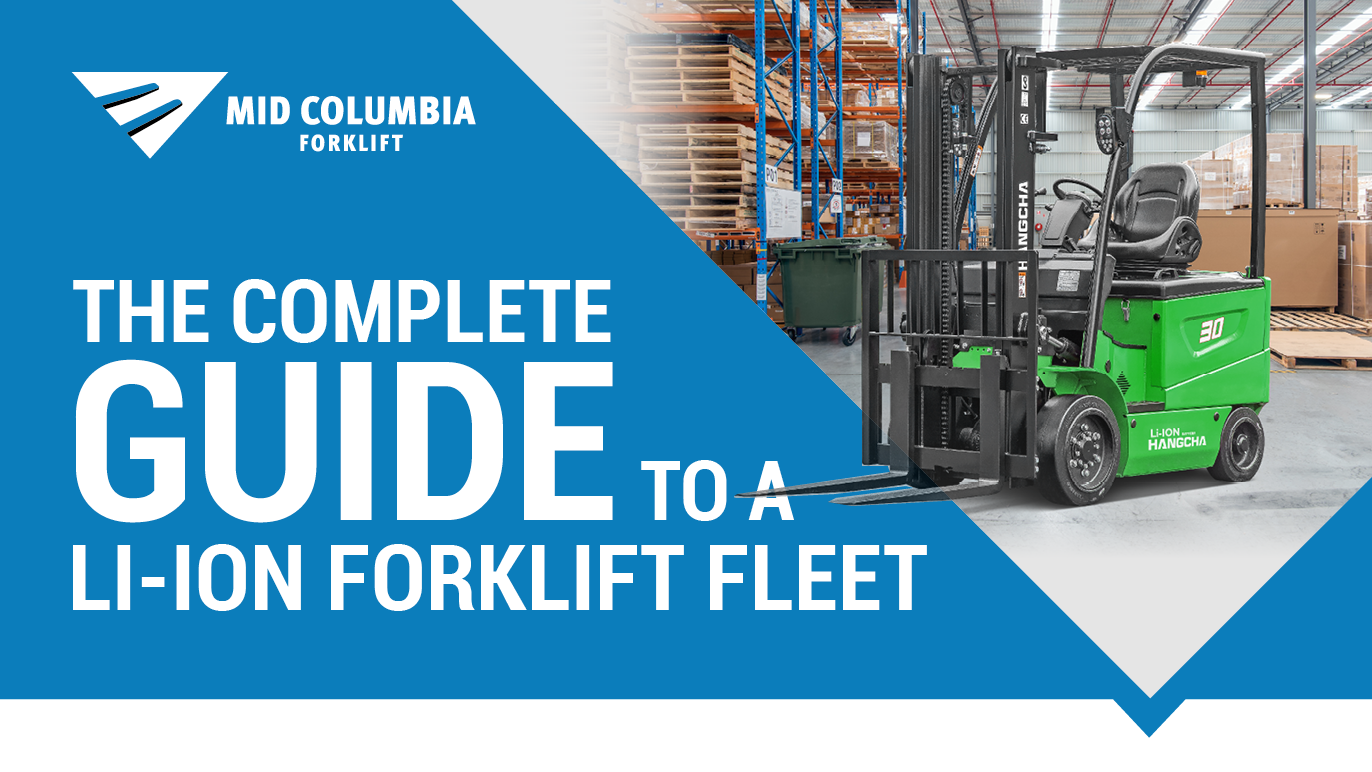 Life can be full of hard choices. Spending resources on one thing means neglecting another. A few more hours at the office might help you toward that promotion. But it means less time with your family. Buying that new car will put a smile on your face. But it could mean a stay-cation this year. Too often, we only get some of what we want.
Life can be full of hard choices. Spending resources on one thing means neglecting another. A few more hours at the office might help you toward that promotion. But it means less time with your family. Buying that new car will put a smile on your face. But it could mean a stay-cation this year. Too often, we only get some of what we want.
But every once in a while, we get to have our cake and eat it too. A lithium-ion forklift fleet is one of those rare win-wins. Investing in a Li-ion fleet saves money, maximizes your time, increases productivity, improves worker health, and protects the environment. And it only gets better from there. So read on to learn how to have it all with a Li-ion forklift fleet.
Why You Should Switch to Li-ion Forklift Batteries
You’re hearing a lot about electric forklifts these days. The benefits of electric over internal combustion engine (IC) forklifts are numerous. But not all electric forklifts are created equal. Lithium-ion (Li-Ion) forklifts are a giant leap forward in electric forklifts.
Easier on the Body and the Globe
IC forklifts burn fossil fuels. And where there’s fire, there’s smoke. IC forklifts pump a cocktail of carbon dioxide and carbon monoxide out of their tailpipes throughout their operating hours. That blend of toxic gas is not great for the environment, contributing to the 5,222 million metric tons of greenhouse gases pumped into the atmosphere each year.
It’s also a hazard for your team. IC vehicles with indoor applications pump their exhaust into your warehouse. Carbon dioxide and monoxide concentrate in the trapped air, forcing your team to breathe it.
And lead acid batteries are only somewhat better. True, they don’t pump poison into the air. But they have a dangerous byproduct too – acid. Lead acid batteries rely on acid-filled compartments to function. These can crack or even explode, injuring your team and damaging your facility.
Li-ion forklifts produce no emissions. So even when their work takes them indoors, they don’t degrade the warehouse air quality. And they contain no corrosive acid to spill. On top of that, they’re recyclable. Thus, they leave a negligible impact on the environment.
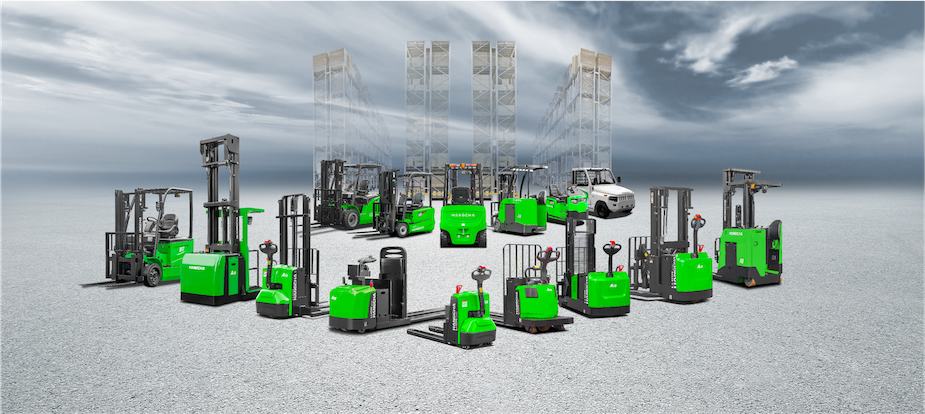
Superior Performance
Li-ion forklift batteries outperform lead acid batteries. Let’s use Hangcha’s Li-ion line as an example. Their rapid charging feature charges to 100% capacity in as little as 2 hours.
But where they really shine is their opportunity charging function. With opportunity charging, they can be charged during the operator’s break. Unlike conventional lead acid batteries, this function allows them to work throughout all three shifts.
Hangcha Li-ion batteries also have an electrical heating feature and a heat-dissipating aluminum alloy frame. The heating feature warms the battery during cold weather to ensure optimal performance. And the heat-dissipating frame protects the battery against overheating. This pair of features allows their Li-ion batteries to operate normally no matter the weather.
And they’re long-lasting. Hangcha Li-ion batteries are rated for 4,000 complete charging cycles and retain at least 80% residual capacity.
Easy To Use and Maintain
Li-ion batteries are easier to maintain than either IC engines or lead acid batteries. IC engines have a whole whirring array of moving parts, each under constant threat of malfunction. Lead acid batteries must be run down before they can be charged and require regular watering. Li-ion batteries require no maintenance at all. It doesn’t get any easier than that.
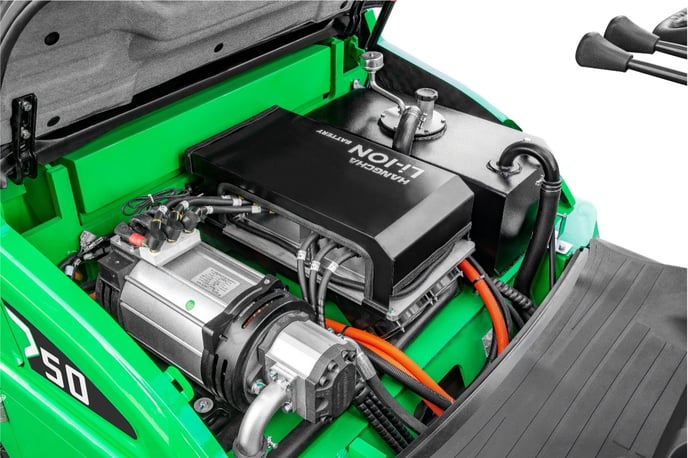
How To Make the Switch to a Li-ion Fleet
Switching to a Li-ion fleet isn’t as effortless as Li-ion battery maintenance. But, it doesn’t have to be complicated or cost-prohibitive.
Planning
Chances are your warehouse isn’t laid out with Li-ion forklifts in mind. Some changes will be needed to install the required infrastructure, like charging stations. And that will require planning.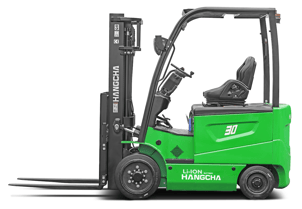 For example, you’ll want to think through where to place the charging stations and when forklifts will charge there. If you are using opportunity charging, you might want those stations near the breakroom. Or, if you are using rapid charging stations with spare batteries, they might fit better elsewhere.
For example, you’ll want to think through where to place the charging stations and when forklifts will charge there. If you are using opportunity charging, you might want those stations near the breakroom. Or, if you are using rapid charging stations with spare batteries, they might fit better elsewhere.
Another consideration is the impact on warehouse activities while the installation process is underway. Construction always affects workflow. But prior planning helps keep productivity high even during that disruption.
These are just a few examples to consider when planning to switch to a Li-ion forklift fleet. For a comprehensive list, you’ll want a site assessment from the experts at Mid-Columbia Forklift.
ROI and Tax Incentives
There is a substantial upfront investment when making an upgrade of this magnitude. It might even seem prohibitively expensive if you are just looking at price tags. But there is more to consider than the initial out-of-pocket.
First is the return on investment. Hangcha Li-ion batteries pay for themselves over time. Accounting for all the costs of lifetime ownership, Li-ion batteries reduce your costs by 55% when compared to lead acid batteries.
And that doesn’t take into account the tax credits. In Washington State, commercial electric vehicles and their infrastructure qualify for tax credits. Infrastructure, like charging stations, can receive tax credits up to 50% of the cost of purchase and installation. Similarly, qualifying commercial electric vehicles can receive tax credits up to 75% of their purchase cost.
There are some caps on that credit depending on the vehicle's weight and whether it is new or used. Regardless, these incentives dramatically decrease the true cost of investing in a Li-ion forklift fleet.
How To Maintain Your Li-ion Forklift Fleet
Once you’ve invested in a new fleet, it’s time to put it to work. While the Hangcha Li-ion batteries don’t require maintenance, the forklifts they power will need some routine service.
Hangcha Forklift Maintenance
Hangcha forklift designs make maintenance easy. Their internal components are fully sealed against dust and water. And their forklifts boast an IPX4 water resistance rating which protects them even in foul weather.
When it does come time for service, the maintenance hatch opens at a wide angle to make access easy. And the battery can be removed with a pallet jack. Ultimately, Hangcha makes it as simple as humanly possible to keep your forklift in good repair.
Hangcha’s Impressive Warranty
A lot of companies boast about the durability of their products. But few back it up with a warranty to match. If you want proof that Hangcha stands behind their equipment, look no further than their Li-ion battery warranty. Their Lithium Iron Phosphate battery pack warranty is 10 years or 20,000 hours.
A 5-year or 10,000-hour extended warranty also protects the forklifts themselves. This warranty covers the reduction gearbox, planetary units, differential drives, the electric drive, and controls. Of course, the forklift must be used as intended, operated by a trained operator, and properly maintained. But that’s all stuff you would do anyway.
The bottom line is that Hangch makes investing in one of their lithium-ion forklifts essentially risk-free.
How To Get Started
Hangcha’s robust warranty, super simple maintenance designs, quick ROI, and Washington’s tax incentives make the choice to invest in a Li-ion forklift fleet a no-brainer. Your Li-ion forklift fleet could meet all your daily needs while saving money, maximizing time, improving warehouse safety, and protecting the environment. What’s not to love?
Ask an expert at Mid-Columbia Forklifts if a Hangcha Li-ion forklift fleet is right for you. Contact us online or reach out to one of our dealerships by phone:
Auburn 253-854-5438
Pasco 509-547-7413
Wenatchee 509-663-9009
Yakima 509-457-5137
Further Reading
How to Switch from IC to Electric Forklifts to Go Green and Save Money
Product Review: Hangcha XC Series Electric Pneumatic Tire Forklift
5 Reasons Why Li-ion Forklift Batteries Are Better than Lead-Acid




